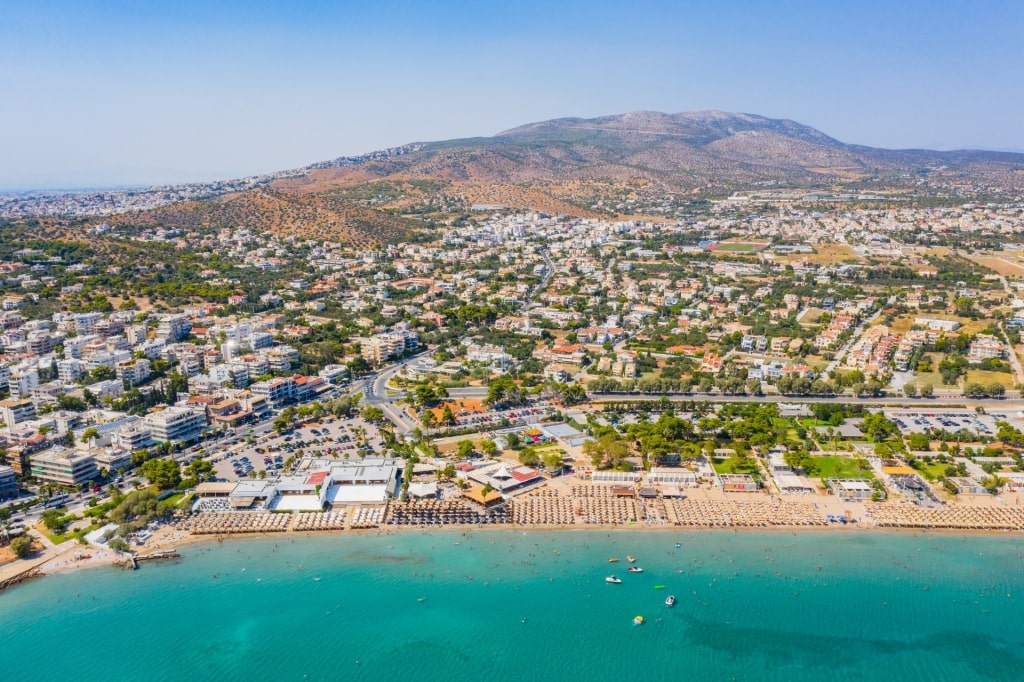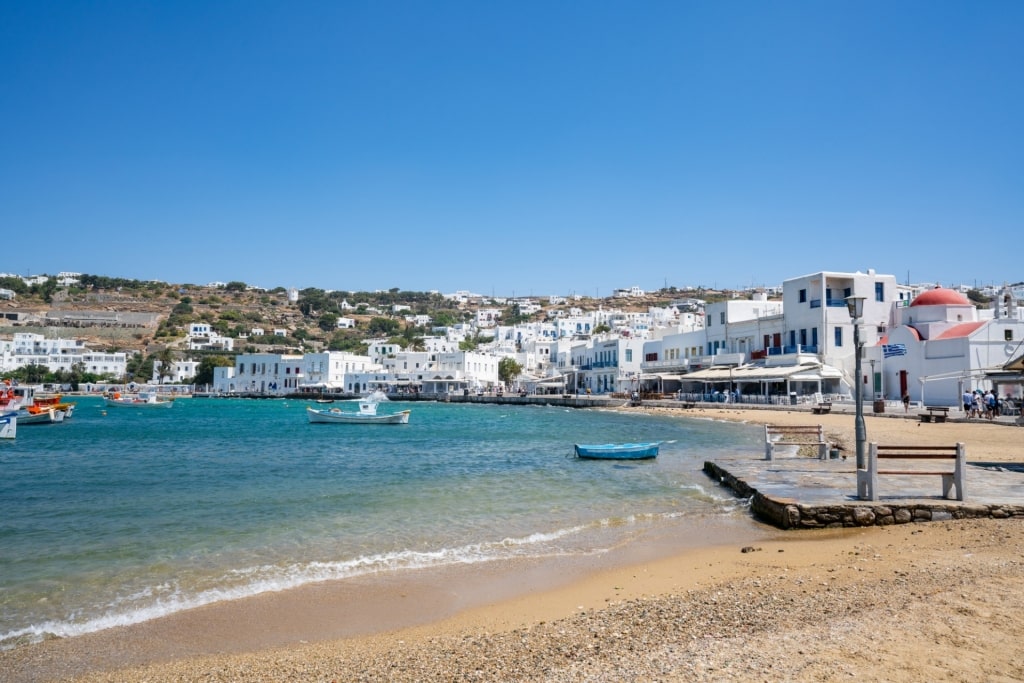The best time to visit Greece is spring or fall, either side of the hot, dry summer. Of course, summer is also a great time to go to Greece for the beaches, the swimming, and long, lazy lunches in waterfront tavernas.
Greece enjoys a typical Mediterranean climate of mild, wet winters and long, usually rain-free summers. Inland, snow often falls on the mountains in winter.
The tourist season in Greece’s islands and along the coasts extends from April, when days are still cool and manageable, to the end of October, when you’ll enjoy clear days, but cooler nights.
Athens, however, is making a name for itself as a year-round destination among those who come for the superb museums and antiquities, with the shoulder season extending well into November.
Visiting Greece by Season
Summer

Athens
Summers in Greece, on the mainland and in the islands, are hot and dry; in fact, Athens is regarded as the hottest capital in Europe. Fortunately, the city is blessed by a beautiful riviera, lined with hotels and beach clubs, where locals go to escape the heat.
June is a pleasantly warm month, with Athens seeing average daily highs of 77.7°F (25.4°C). July and August are when sun-seekers from all over Europe flock to the Aegean, and sightseeing has to be managed to avoid the intense heat of midday. Expect average highs of 83.3°F (28.5°C) in Athens in August and 78.6°F (25.9°C) in Santorini.
This is a time to slow down to the locals’ pace, snooze during the heat of the day, and enjoy the relative cool of the early morning and early evening.
Summer in Greece can be windy, as the Meltemi, a wind from the north and northeast, begins to blow. The wind tends to pick up in the afternoons, calming down by early evening. The breeze is certainly cooling, but the sea can be chopping for watersports like windsurfing and kayaking.

Elia Beach, Mykonos
Fall
Fall is arguably the best time to go to Greece, with the long summer extending through September into early October. Temperatures have dropped in Athens to a more manageable 67.8°F (19.9°C) by October, but the days are usually sunny and clear and the sea is still deliciously warm for swimming.
By November, the weather has cooled down considerably, with Athens seeing average highs of 59.6°F (15.3°C).
Winter
Greece is a seasonal destination, apart from Athens and to an extent, Thessaloniki, which have year-round appeal. From December to February, the islands are extremely quiet and many of the locals take time off after the busy summer.
The weather is cool and rain is frequent, at least up to March. In the Greek cities, however, there’s still plenty going on.
Spring
Spring is a beautiful time to visit Greece. The sea will still be chilly after the winter, but the air is clear. Restaurants and bars are opening up. In Crete, the valleys are lush and green, strewn with wildflowers. Expect average highs of 66.1°F (19°C) in the southern Aegean by May.
Note that Easter for the Greek Orthodox faith follows the Julian calendar, which falls a few weeks after the Catholic and Protestant Easter, which is determined by the Gregorian calendar.
Greek Easter usually falls in April or May and is considered the most important holiday of the year, with services and celebrations taking place throughout Holy Week. This can be a wonderful time to visit to learn about Greek traditions.
When Is Rainy Season?
November to March is the rainiest time in Greece. Up to 2.4 inches (60mm) falls in December, the wettest month, which could see 11 days on which it rains. On higher ground, in the mountains to the north and even in Crete, precipitation may fall as snow.
Otherwise, you’ll see little rain in summer, although June can be prone to thunderstorms.
When Is High Season?

Mykonos Town
High season in Greece is the summer, from late June to early September. July and August are the busiest months for beach lovers.
Islands like Mykonos and Santorini can be busier than usual during summer. In Athens, you’ll need to time your visit to the Acropolis and other sites to avoid the heat. Evenings are especially lively, with bars and restaurants doing a bustling trade late into the night.
When Is Shoulder Season?
Greece’s shoulder season is April and early May, and then September and October, stretching into early November as the Mediterranean season continues to be prolonged.
Both spring and fall are wonderful times to visit, with fewer crowds, spectacular hiking, and temperatures warm enough to dine outside.
Read: Europe in April
When Is Low Season?
Low season in Greece is January and February when the weather is at its coolest and wettest. The islands are quiet now, with many establishments closed as the owners take a much-needed vacation.

Kalafatis Beach, Mykonos
Do you want to discover more about Greece’s islands, antiquities, and welcoming people? Browse Celebrity’s cruises to Greece and plan your next vacation.



